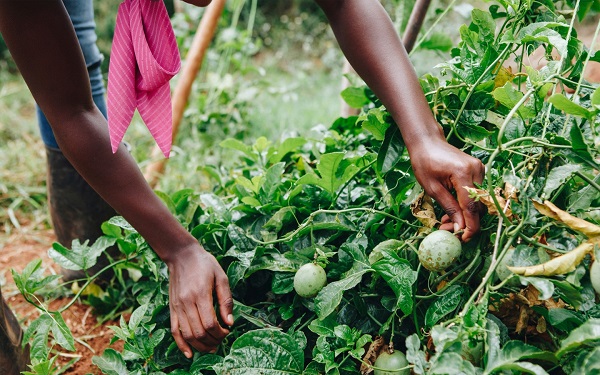Rapidly-rising demand for food driven largely by a burgeoning population and rising incomes will provide major opportunities for a transformation of African food systems along with a transformation of African economies more broadly.
The transformation to sustainable and resilient food systems will require African agriculture to become more inclusive, productive, and profitable. In this article we look at the megatrends shaping African food systems:
Rural population growth and associated rising land scarcity
Africa continues to experience high rates of population growth. Between 2017 and 2050, the populations of 26 African countries are projected to expand to at least double their current size. Over this same period, SSA’s rural population is expected to rise by 53 percent (UN DESA, 2019).
Rapid rural population growth implies continued growth in demand for agricultural land. Moreover, a growing class of middle- and high-income urban-based Africans with an interest in commercialized farming has further intensified the demand for agricultural land.
Meanwhile, there has been a rising global interest in African farmland (Schoneveld, 2014). These forces have combined to create conditions of land scarcity, and with it, explosive increases in land values.
Rapidly-rising urban populations
Africa’s urban populations are also rising rapidly – even faster than in rural areas. Real per capita incomes are also rising in most parts of the continent. The combination of high population growth and rising incomes is creating explosive growth in food demand for food on the continent, which is in turn generating a downstream modernization of food systems.
Africa faces a dilemma: if it is not able to raise yields sufficiently to satisfy this burgeoning demand from existing farmland, it will need to convert much of its remaining forests and natural grasslands into farmland – with associated high costs to the continent’s environment, biodiversity, and the ecosystems services that they provide – and/or become much more dependent on the global market for its food supplies (van Ittersum et al., 2016).
The transformation of Africa’s food systems will require structural changes to reduce waste and food losses, improve nutritional status, create renewable energy uses, and the promotion of circular economy initiatives to optimize the function of food systems. According to the African Union, Africa currently imports about 40 percent of its food
Rising wage rates and per capita incomes
Rising average incomes for a growing proportion of the population coupled with rapid urban population growth is creating challenges and opportunities for African food systems in at
least three ways. First, rising wages and incomes are triggering demand for more processed and livestockbased foods than before.
Rising per capita incomes inducing dietary change as per Bennet’s Law leading to increased demand for meat, fish, processed foods, cooking oil, and foods prepared away from home. This will continue to fuel private investment and growth in the cereal and oilseed sectors because of their role as animal feed, but also the processing industry and human nutrition in general.
Climate change
Climate change is the single most systemic global environmental problem that affects all regions and socio-economic divides. The inexorable increase in global atmospheric temperatures driven by a steady increase in GHG emissions has increasingly wrought a host of environmental and physiological challenges for life on earth in general and agriculture in particular over the past two decades.
Ethiopia, Kenya, and Somalia for example are experiencing severe multiseason drought conditions (with the lowest March to May rains recorded in 70 years) that bring the threat of starvation to millions.
Global health crises, regional conflicts, and economic disruptions
The high incidence of acute food insecurity and malnutrition in numerous countries across Africa starkly exposes the fragility of regional food systems that are under mounting pressure from the increased frequency and severity of weather extremes, ongoing
impacts of the COVID-19 pandemic, increasing conflict and insecurity, and rising global food prices.
Rapid globalization, especially over the past four decades, has increased African countries’ vulnerability to regional as well as global economic shocks. The interconnectedness of these drivers is further revealed by the unfolding war in Ukraine, which compounds existing challenges faced by millions of acutely food-insecure people across Africa and globally.
The Russia-Ukraine crisis unambiguously demonstrated how the Baltic Sea region accounted for 25 percent of the world’s wheat exports, 40 percent sunflower oil, 15 percent barley and 15 percent of corn exports.
The past two-odd years have served as a difficult reminder of the risks that abound
with Africa’s excessive reliance on global supply chains for key agricultural commodities notably wheat, corn, and cooking oil to meet the food security needs of its rapidly growing and urbanizing population.
Technical innovation in communications, information, and supply chains
While the pace of technical innovation across the agrifood value chain is lower in Africa compared to global trends, the continent is experiencing leapfrogging in digital agriculture.
In most African countries, the rapid adoption of mobile phones and internet connectivity have accelerated the deployment of agricultural services for farmers and other value chain actors resulting in enhanced access to information, knowledge, financial services, markets, and farm tools.
According to a recent report by CTA9 and Dalberg, there were at least 390 ICT and digital solutions actively operating in the African agriculture space in 2018. By the end of 2019, that number had gone up to 437 just for SSA.
Also Read
African agriculture is ready for a digital revolution
Time to reset agriculture’s relationship with nature in Africa
